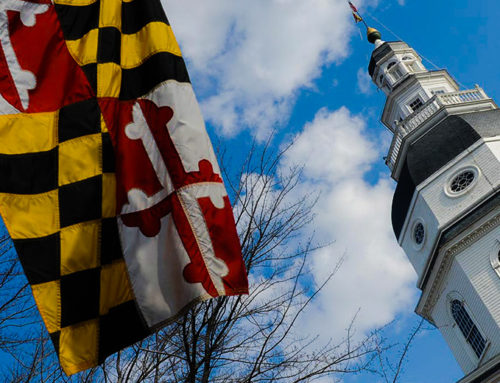View by Topic
Recent Articles
-
EPA Will Keep Current Limits for “Forever Chemicals” in Drinking WaterSaturday, May 24th, 2025
-
Court Indefinitely Pauses SEC Climate Rule LitigationSaturday, May 17th, 2025
-
Maryland is About to Regulate Mold But is the Cart Before the HorseSaturday, May 10th, 2025
-
New Environmental Laws from the 2025 Maryland Legislative SessionSaturday, April 26th, 2025
View by Month/Year
“Green Building Law Update” Headlines
Recent Articles & News from
Stuart Kaplow’s blog
at GreenBuildingLawUpdate.com
- EPA Will Keep Current Limits for “Forever Chemicals” in Drinking Water May 25, 2025
- Court Indefinitely Pauses SEC Climate Rule Litigation May 18, 2025
- Maryland is About to Regulate Mold: But is the Cart Before the Horse? May 11, 2025
- BEPS Redux: The Most Far Reaching Environmental Legislation of the 2025 Maryland General Assembly May 4, 2025
Subscribe to the Green Building Law Update!
Stuart Kaplow brings his expertise and extensive experience to the table with his unique digital publication, "Green Building Law Update". Subscribers receive regular updates to keep them informed about important issues surrounding Environmental Law, Green Building & Real Estate Law, as well as the emerging demand for Environmental Social Governance (ESG).
Get fresh content through the lense of Stuart Kaplow's cutting-edge expertise, innovative commentary and insider perspective. Don't miss another issue! Subscribe below.
Referendum Not Permitted in Baltimore City
A “referendum” broadly speaking is the reservation by the people of the State, or local subdivision, of the right to have submitted for their approval or rejection, under certain prescribed conditions, a law or part of a law passed by the law making body.
More particularly, the term referendum under Maryland law means that power of direct legislation through the exercise of which the people of a state or a local subdivision may approve or reject an act or other measure passed by a legislative body.
It is customary to draw a distinction between “compulsory” referenda on the one hand and optional or “facultative” referenda on the other. Where the legislature directs that a given statute not take effect until and unless approved by a vote of the electorate, it is described as compulsory. A recent example of compulsory referenda in Maryland, where the law by its terms required an affirmative statewide ballot of the voters, is Question 7 – the Gaming Expansion Referendum (Ch. 1 of the 2012 General Assembly session).
Where, however, the people are authorized, by constitutional reservation or local charter, to require submission of a bill for their approval by petition, even though the legislature is silent on the matter of a plebiscite, the voters are said to possess the power of facultative referendum. A recent example of facultative referenda, where the voters petitioned the law to referendum, is statewide ballot Question 6 – the Civil Marriage Protection Act (Ch. 2 of the 2012 General Assembly session). It is that category of facultative referenda we will consider here.
Baltimore City is Neither a Code County Nor a Charter County
Interestingly, the Maryland Constitution explicitly guarantees the right of referendum over local legislation to the residents of “code counties” excepting the residents of counties opting for a charter form of government under Maryland Constitution, Art. XI-A.
Maryland has had four consitutions. At the time of the Revolutionary War, the first constitution was adopted by the Ninth Provincial Convention, meeting at Annapolis, in November 1776. Voters adopted the second constitution in June 1851. During the Civil War, the third constitution was adopted by the voters in October 1864. Voters adopted the fourth and last constitution under which Maryland government now functions in September 1867. The Maryland Constitution reviewed here includes amendments proposed by the General Assembly and ratified by the voters through November 6, 2012.
Voters in code counties enjoy the referendum power by reason of Maryland Constitution, Art. XI-F, § 7, while residents of non-home rule counties exercise this power over public local laws pursuant to Maryland Constitution, Art. XVI, § 3. Despite the lack of express constitutional authority, several charter counties have reserved the right of referendum by charter provision. See, e.g., Baltimore County Charter, § 309; Montgomery County Charter, § 114; and Prince George’s County Charter, § 319.
Baltimore City is one of Maryland’s 23 counties, but it is neither a code county nor a charter county. Baltimore City’s rights of local self government are authorized by Annotated Code of Maryland, Article 11.
Local Self Government
Resolution of the issue presented here turns on the nature and scope of the rights of local self government guaranteed to county residents by Article XI-A of the Constitution as implemented by Annotated Code of Maryland, Article 25A. From the time of the establishment of the first county administration (St. Mary’s) around the year 1637, to the first decade of the twentieth century, residents of Maryland’s 23 counties (which include Baltimore City) enjoyed no appreciable measure of local self-determination.
The waning years of the nineteenth century witnessed the birth of a national movement, the purpose of which was to restore and revitalize local government by giving citizens of counties and municipalities the power to legislate as to local matters free from undue encroachment by state legislatures. In Maryland, as elsewhere, the “Home Rule” movement was fueled by widespread public indignation over excessive legislative interference with and insensitivity toward local problems and concerns, and by a growing dissatisfaction with the enormously inefficient system of performing local law-making functions at the state level. It was this popular demand for increased local autonomy that led ultimately to the ratification of Maryland Constitution Article XI-A in the general election of November 1915.
Significantly, Article XI-A does not in and of itself confer legislative power upon the counties. Instead it mandates that the General Assembly expressly enumerate and delegate those powers exercisable by counties electing a charter form of government. Md. Const., Art. XI-A, § 2.
The means by which “the inhabitants acquire such legislative power” and autonomy is the charter. Being, in effect, a local constitution, the charter fixes the framework for the organization of the county government (e.g., charter is to local legislative body as Constitution is to General Assembly).
Referendum was Impossible
Prior to 1915, facultative referendum was impossible in Maryland on the theory that the authority to enact, repeal or amend laws had been vested exclusively in the General Assembly. In response to the public outcry over corruption in state government and alleged abuses of legislative power, the General Assembly proposed and the people ratified Article XVI, reserving the right of referendum by petition with respect to public general and local laws enacted by the General Assembly.
As such, referendum by petition is quite clearly a legislative power fixed in the form or structure of local government and therefore belongs to that class of powers vested directly in the people of the several counties by Maryland Constitution Article XI-A, § 1. That is, local referenda are permitted when an authorizing provision is adopted in a local government charter or other similar organic document.
By way of example, that authorizing provision might look like the relevant provision found in the Baltimore County Charter:
Sec. 309. The Referendum. (a) Scope of the referendum. The people of Baltimore County reserve to themselves the power known as “The Referendum,” by petition to have submitted to the registered voters of the county, to approve or reject at the polls, any enacted law or ordinance or part of any such law or ordinance of the county council. The referendum petition against any such law or ordinance shall be sufficient if signed by ten per cent of the qualified voters of the county calculated upon the whole number of votes cast in the county for Governor at the last preceding gubernatorial election. Such petition shall be filed with the board of supervisors of elections of Baltimore County within forty-five days after the enactment of the laws to be referred to the voters at the next general election. …
Such a provision, authorizing a referendum, simply does not appear in the Baltimore City Charter.
Note, such omission cannot be construed as an oversight because the term referendum does actually appear in the Baltimore City Charter, twice, neither time applicable in this instance, and only for the very limited purpose and with limited standing granted to “property owners” within a proposed Special Tax Districts.
There was a single instance where substantially the same matter was considered by Baltimore City government. In 1916 the Mayor and City Council of Baltimore passed an ordinance repealing a section of the city code, which prohibited the playing of ball or any other game on the Sabbath Day within the limits of the city. The Mayor and City Council re-enacted the section with amendments so as to except the playing of certain sports from prohibition under certain conditions. The ordinance, by its terms, was not to become effective until it was submitted to and approved by the voters of the City at a general election. The court ruled that the Mayor and City Council, or the Board, had no authority to submit a referendum question as to the approval of the ordinance at the general election and that it should have been omitted from the official ballots.
“If it could be held that, without antecedent authority from the General Assembly, all questions of local interest to a county or municipality must be printed and submitted on the official ballots, when certified by a Board of County Commissioners or by the City Register of Baltimore, it is possible that the processes of a general election might at times be unduly encumbered with such proposals. But apart from this consideration, we are clearly of the opinion that the general election laws contemplate the submission of only such local questions as may be formulated only when enabled by the state and also authorized by charter or other appropriate local laws.”
Conclusion
A local government ordinance of the Mayor and City Council of Baltimore cannot be petitioned to referendum. Maybe it is time to change that?









